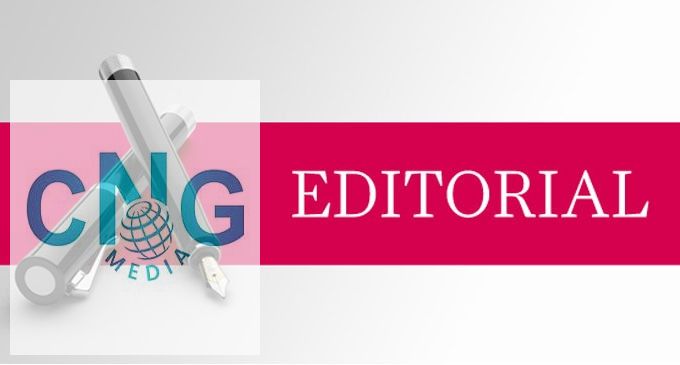While many describes the results of Jamaica’s general elections as ‘shocking’ – ‘historic’ and question the validity of ‘traditionally safe territory/seats’ – the lessons learnt has aroused the construct that COVID-19 pandemic elections in the Caribbean is not only destructive to health and the economy, but serves as a deterrent and voter suppression mechanism, for corrupt governments to exploit.
This pattern has also brought to light what has been termed the acceptable leadership construct, the validity of social media campaigns, strategy and the distrust of voters to “internal wrangling” on matters of leadership, and the assessment of “outsiders”. The arguments transcend may sound “awesome and cute” but similar to economic arguments “without people there is no economy. COVID-19 pandemic elections in the Caribbean is not immune, because, without people, democracy dies.
Recent election results in St Kitts and Nevis, Trinidad and Tobago, and now, Jamaica, bears consistent similarities. Tight control of the voters’ list, freedom of movement and freedom of expressions, recalibration of the traditional modality of a campaign (pressing flesh, music, dancing and drinking; and camaraderie) to a social media platform that is less engaging and more thoughtful.
COVID-19 pandemic elections in the Caribbean has intensity voter apathy that is compensated in “cash and or cheque distribution by government apparatus, the delivery of groceries, promise of care, an influx of questionable charities, the promise of a job and/or job preservation ( amid massive layoffs, empty hotels, bankruptcies, state of emergency, no-bid inflated contracts) nepotism and systemic corruption,” has significantly engulfed the region.
Andrew Holness, post-election, said: “In our last government, the narrative of corruption dogged us, and it is not something that we can hide away from, and I want to be clear because there are many persons who will now be assuming state authority who may not have the understanding as to how that authority should be used.”
The electoral commission estimated the overall voter turnout at approximately 35- 37 percent (pending final recounts) the lowest in the country’s history, compared to 48 percent in the 2016 general election. But for other reasons, analysis, or doctrine, in any democracy, deciding not to participate in the electoral process in mass numbers represents outright frustration, hopelessness and separation from the formal social and economy apparatus. And thus, signals the expansion of the underground economy (continuation of corrupt practices) detrimental to economic rebound and recovery.
Jamaica is heavily dependent on tourism with a population of 2.9 million. Crime and violence remain high while youth unemployment and access to education are key issues. Notable, Peter Phillips of the People’s National Party (PNP) mention during the campaign that his PNP was an alternative to “economic stagnation [and] major crime” and that he could offer a “future of relief from COVID-19 pressures”.
There is also the statement by Holness that the victory was a clear sign that Jamaicans preferred the more “realistic” policy options: “I think the manifesto that we have put out is a quite balanced manifest, ensuring that the personal interests are dealt with, people’s pension, people’s education, people’s access to water, people’s access to housing, but at the same time, the national interests of maintaining fiscal prudence so that we could actually afford the things,” Holness said, pre-election.
So how will Holness govern with approximately 35-37 percent voter participation to “build trust among wide sections of the Jamaican people to keep his promises”?
The former prime minister of Saint Lucia, Dr Kenny Anthony, in his inscription on social media said: “No government should ever be comfortable governing a country having secured a mandate based on a voter turnout of 37 percent of the electorate, no matter what the majority may have been in individual constituencies. This really goes to the heart of the legitimacy of the government.”
According to Desmond McKenzie, former Kingston mayor: “What went right is we have the right leader in Andrew Holness. People are voting on performance and no longer, on tradition. People want results and this government … has been delivering since 2016.”
And perhaps, this dovetails into Holness pledge: “It must never be that the government that emerges from this victory take the people for granted. I do want to ensure all of you that I do carry this burden with great consideration of not just those who elected us, but those who are looking on us for future decisions as to whether or not they will participate in the process.”
This global financial crisis and COVID-19 pandemic has shown that it is different from the outbreak to the spread around the globe—including socio-economic firepower on a scale rarely seen before. Thus, COVID-19 pandemic elections in the Caribbean is a generational threat to democracy, social and economic advances. Leadership, governance, and policy that emerge will prove the shared nature of election results and COVID-19 socio-economic shocks on the larger population for approximately 30 years from now.
“The Jamaican people are maturing in their outlook. They understand that populist policies can have a destructive impact on the national good. So, in that regard, Jamaica has won,” Holness said.
US Secretary of State, Michael Pompeo said in his congratulatory message on Jamaica’s elections, “the US government looks forward to continuing to work with prime minister Holness on bilateral, regional, and global initiatives as we deepen and strengthen this important relationship.”
Albeit COVID-19 pandemic elections in the Caribbean of ‘shocking’ and/or ‘historic’ results, many analyst queries: Has COVID-19 pandemic elections in the Caribbean rewarded incumbent corrupt governments by their own doing and public utterances, resulted in the loss of trust in the democratic process – voter participation – and subsequently, shift the burden of responsibility to a select few, while the majority are reduced to carve-out a post-COVID-19 era, independent of the central government?
The shared nature of the present and future is dependent on a new, and advanced measures built on what is already dubbed the virtual economy, smart cities, and enclaves, capable to unclog the thinking. The context of which is the quadratic equation, variable ‘x’ represents the unknown and ‘a’, ‘b’, and ‘c’ are constants, to unhinge the well-practised linchpin, hovering over our civilization.







